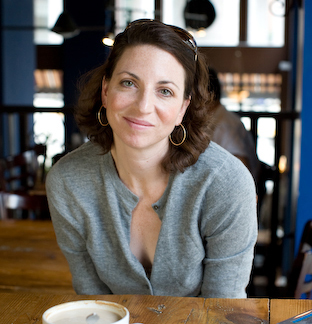This is the last thing I should be writing on my blog. Because it’s now clear that the blog is a great dating tool. Propositions all the time. So I should not tell you this, but here it is: It turns out that I’m a lousy girlfriend.
Not the bad in bed type. Well, sort of. Because I’m game for anything, but only as long as I don’t have to be vulnerable.
At work, I’m great because all workplace vulnerability is based in talking—everyone gets to talk all the time—and I’m a very good talker. I can say things that would seem vulnerable, but really, talking is a way for me to constantly make sure that I am in charge.
The farmer likes less talk.
When I was with the farmer, the first night, and we were having intellectual banter about if he should date someone who will never move to the farm and never make him apple pies, I was winning. I won when we argued if he needed to call God “He” in a prayer. I told him that I read Hebrew, and in Hebrew the word for God is gender neutral.
So after a bunch of verbal sparring, I leaned across the sofa and kissed him. Even though he said he didn’t want to kiss. He kissed back, and I felt victorious.
Flash forward: To now. To me next to his bed, typing. Because he told me that absolutely today we were not going to do arguing in bed.
“But that’s my favorite thing to do,” I told him. In bed. Gearing up for an argument.
“Let’s just have fun,” he said.
“That is fun.”
“Let’s go running in the corn field.”
He loves that. He says he loves running in his fields because he’s a guy and women feel close talking and men feel close doing things. But I think he loves running in the corn because the corn is high now, and it makes you feel cozy, and he runs too fast for me to keep up and talk at the same time.
Ten million times a year I write about how people would rather work with people they like than people who are competent. And then everyone asks, “How can I be more likable?”
So I tell people the answer: “Be more vulnerable.” And then I suggest stuff that is easy for me but hard for most people: Admit shortcomings, confess stuff you are having trouble fixing, ask for advice on things you cannot figure out. If you let people see the cracks in your surface, that is where they will find a way in.
But in my personal life, this is extremely hard for me. So my own process for figuring out how to be vulnerable with the farmer is actually a good step-by step lesson on how to be vulnerable in any relationship.
Later, hours after the run, the farmer sits up in bed, head propped on a pillow. I am undressing at the foot of the bed.
I take down my pants and my underwear in one fell swoop.
“Hey. Hold it,” he says. “Do you even have underwear on? Why so fast? What about undressing slower?”
I think about it. I see he wants some sort of strip tease. Not the kind with a pole. But the kind that is sort of casual but has some zing.
It already took me three weeks to get rid of the underwear that could have passed for a bathing suit. So now I have the sexy underwear, but I can’t really use it. I’m very comfortable talking about it, not so comfortable seducing with it.
And then there is the bed. And we are on it. And I cannot cope. We are not sparring verbally. So I wait to hear him talk. He talks about things like the cattle, like my day. My meetings. The grass. His sister. Not small talk but not conflict. Something in between that surely is a building block of intimacy, but I cannot figure out how to do it.
I am quiet. And then, I think, he feels close to me because I am not arguing with him, so he rolls over on top of me and I nearly cry. From the stress of having to be vulnerable and intimate and not connect with words.
I want to talk about my meeting. We got a new board member and he was fun and he liked talking with me and I like when someone likes talking with me because I am so comfortable with that. He said there are not a lot of people in Madison like me and I took that to mean that when I told him that he was full of crap and he should talk to people with his heart, he liked me. I am good with words. I am good with talking.
People think I’m being intimate with the talking, because for example, I told the guy who I want to be on my board that I waxed off all my pubic hair because I read that 90% of Generation Y girls wax it off and I wanted to see what I was missing. So he thinks I’m all vulnerable and intimate with him and we are connecting, but look, I’ll tell that stuff to anyone.
For years I was the manager telling employees their career will tank if they don’t become more vulnerable with their co-workers. At the farm, I’m like my employees, but it’s the non-verbal stuff that flummoxes me. A hand on a chest. A peck on the arm. A stroke on the back. And no talking.
The farm is absolutely lovely right now. But I see the corn growing taller and blocking the views I’ve almost become used to. And I am worried that I don’t know what the winter will bring.
It all makes me nervous. And, like an employee who does not have the social skills for management, I wonder if I will get good at this girlfriend stuff any time soon.



